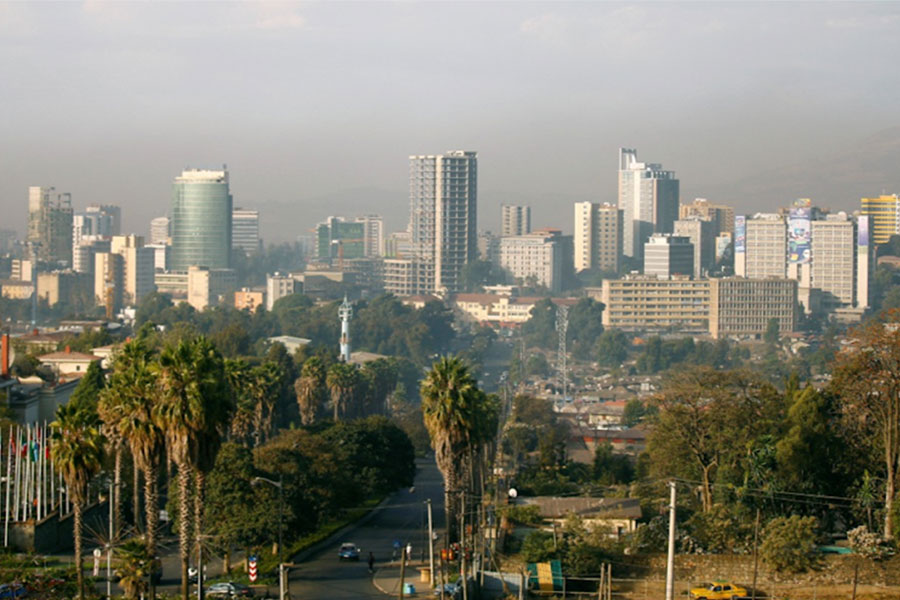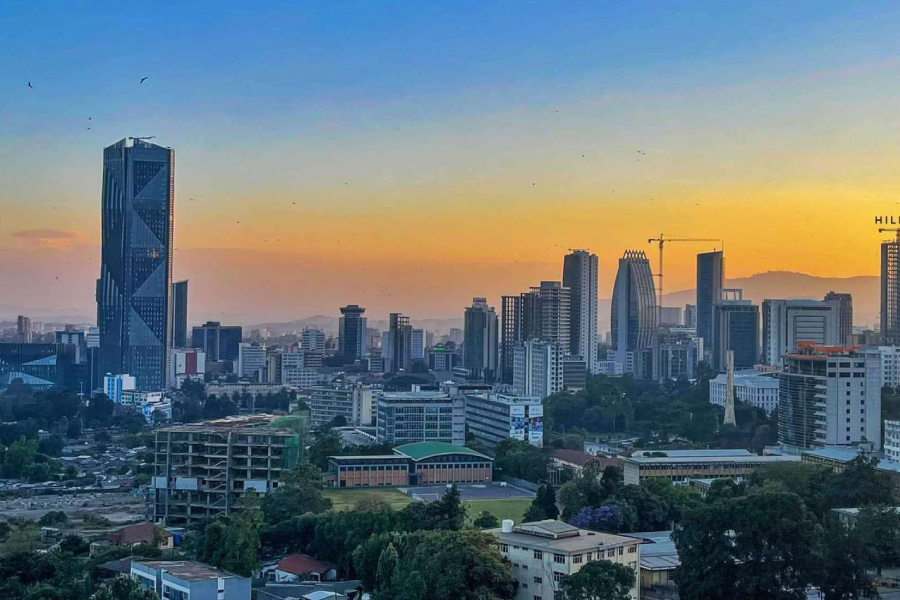
Radar | Sep 06,2020
Manufacturers press federal authorities to speed up the transformation of industrial parks into special economic zones (SEZs), a shift they see as vital to their survival during mounting economic pressures. A lobby group of 18 investors operating in the Hawassa Industrial Park (HIP) recently penned a letter conveying the desperation of companies struggling under a foreign exchange retention policy that allows them to keep only 50pc of their earnings.
The National Bank of Ethiopia (NBE) recently issued a directive freeing SEZs from retention rules, permitting them to retain 100pc of foreign exchange earned. Non-SEZ exporters are required to surrender half of their forex earnings to banks at the current exchange rate, with the remaining half held for a brief 30 days. Manufacturers within Hawassa Park argue that the delay in designating the Park as a special economic zone is causing them loss.
Special economic zones (SEZs) offer numerous advantages, including tax-related preferential treatment, simplified bureaucratic procedures, relatively organised infrastructure, and diversified operations. They can range from export-oriented zones to technology and logistics hubs.
Hibret Lemma, president of the HIP Investors Association, fears companies will suffer huge losses. According to the President, a binding governmental decision has not been forthcoming despite Hawassa Park meeting all the criteria for a special zone status.
Tariku Adugna, chief of staff at the Industrial Park Development Corporation (IPDC), attributed potential designation to procedures that "need to be carried out." He disclosed that discussions are ongoing with the NBE to temporarily allow all industrial parks to retain their foreign exchange fully. However, the measure is seen as a temporary solution while the designation of these parks as special zones is being processed. According to Tariku, a rigorous process is involved, noting that the IPDC is conducting a study to determine which parks will transition to SEZs under the proclamation.
The decision to designate special economic zones rests with the Ethiopian Investment Board, chaired by the Prime Minister. The board comprises Central Bank Governor Mamo Mihretu, Finance Minister Ahmed Shide, Planning & Development Minister Fitsum Asfaw (PhD), and Hanna Arayaselassie, commissioner of the Investment Commission.
The Dire Dawa Free Trade Zone (DDFTZ), 445Km east of Addis Ababa, is believed to have met the criteria.
It is slated to begin operations as a special economic zone in a month, with a plan to expand it to 288hct from its current 150hct, housing seven companies in 15 sheds. The five-year-old zone generated seven million dollars from manufacturing in 2023. Due to its proximity to ports in Djibouti and suitability for multimodal transport and logistics, Dire Dawa has attracted investors' interest. Over 300 domestic and international companies have submitted proposals to operate in the zone, with 10 being selected.
In the words of Tariku, "Investments are expected to proliferate."
Other companies in the Bole Lemi Industrial Park (BLIP) have also shown interest in becoming special economic zones.
"Transitions are still in the pipeline," said manager Tinsae Amare.
Discussions with the Investment Commission authorities have been held in recent weeks about the transition requirements, with an eye on 100pc forex retention. According to Ministry of Industry data, exports from the Park, totalling 460 million dollars, decreased from last year.
"Other countries, with more efficient and integrated systems, are outbidding us," Hibret told Fortune.
Low demand in the international market, limited export orders, and logistics disruptions caused by regional conflicts on the Red Sea exacerbate the manufacturers' plight. The suspension of Ethiopia from the African Growth & Opportunity Act (AGOA) in early 2022 due to the civil war in the Tigray and neighbouring regional states dealt a consequential blow. Companies that previously relied almost exclusively on the U.S. market have struggled to redirect to European markets, making rerouting difficult.
"The textile and garment industry has never been the same after the AGOA ban," said Belay Hailemichael, head of the Ethiopian Investment Commission's Hawassa branch.
Since the suspension, six companies have left Hawassa due to various external and internal pressures. On a positive note, three companies are vying to enter the Park in various sectors. Belay remains hopeful but acknowledges the need to address the constraints facing current operators.
An illustrative case is Tal Apparel, a Chinese-owned company operating in Hawassa Park, occupying four sheds. The company previously exported 90pc of its products to the U.S., but shifted focus to Europe after the delisting. It has faced financial difficulties since the implementation of new exchange regulations.
"It's been negatively affecting the business," said Tewodros Andualem, the finance manager. "The AGOA ban has been a major blow to the company."
Last year, the federal government introduced a stopgap measure, temporarily allowing companies in industrial parks to access domestic markets to prevent business collapses. However, with the delisting from AGOA's preferential status extended for another year, the manufacturer's position remains precarious, intensifying the need for a sustainable solution.
"Manufacturers need to be supported," said Matiwos Ashenafi, manager of Hawassa Industrial Park.
Despite a series of discussions with federal officials, companies' concerns about foreign currency retention and raw material imports have persisted. Belay echoed this sentiment. He argued that the Park meets all the special economic zone designation criteria, including environmental certification, production volume, and capital investment.
Occupying a 130hct area with 52 sheds, 216Km south of Addis Abeba, in Sidama Regional State, the Hawassa Industrial Park surpasses the combined capital requirement for special zone status.
"We expect the transition soon," Belay told Fortune.
Exports from industrial parks, including HIP, have been declining. Hawassa, one of the pioneering industrial parks, had a monthly capacity of 30 million dollars in revenue but only met 25pc of its export potential. This manifests the broader issues within the industrial sector, where manufacturers contend with high costs, inefficient logistics, and cumbersome customs procedures strangling their operations.
According to Getasew Yehuala, head of the textile department at the Ministry, industrial parks face many problems, such as low production output resulting from various external factors, including low demand and the labour-intensive nature of the manufacturing sector. A World Bank report published two years ago assessed the industrial parks as underdeveloped and poorly integrated into the domestic market. The report identified overarching national macroeconomic issues, gaps in the legal and policy framework, and several shortcomings in the implementation and development of the parks over the past 15 years.
The first industrial Park, Eastern Industrial Park (EIP), established by Chinese investors in 2007, failed to meet government expectations. Installed 30Km east Addis Abeba in Dukem town, Oromia Regional State, the land was leased at a nominal rate of one Birr for a square meter for 99 years, the World Bank disclosed. Currently, Ethiopia has 13 industrial parks, with eight of them fully operational.
Experts from the Ministry of Industry surveyed to determine the foreign exchange requirements of factories in all industrial parks. Their findings concluded that the current retention rate of 50pc was adequate to support their operations.
Officials at the NBE acknowledged the verity of exporters' concerns but argued that the directive is intended to strengthen the interbank foreign exchange market.
PUBLISHED ON
[ VOL
, NO
]

Radar | Sep 06,2020

Commentaries | Oct 07,2023

Fortune News | Sep 30,2023

Fortune News | May 15,2024

Editorial | Jul 20,2024

Radar | Sep 19,2020

Radar | Apr 13,2025

Featured | Apr 26,2019

Fortune News | Oct 18,2025

Fortune News | Aug 04,2024

Dec 22 , 2024 . By TIZITA SHEWAFERAW
Charged with transforming colossal state-owned enterprises into modern and competitiv...

Aug 18 , 2024 . By AKSAH ITALO
Although predictable Yonas Zerihun's job in the ride-hailing service is not immune to...

Jul 28 , 2024 . By TIZITA SHEWAFERAW
Unhabitual, perhaps too many, Samuel Gebreyohannes, 38, used to occasionally enjoy a couple of beers at breakfast. However, he recently swit...

Jul 13 , 2024 . By AKSAH ITALO
Investors who rely on tractors, trucks, and field vehicles for commuting, transporting commodities, and f...

Oct 18 , 2025
The political establishment, notably the ruling party and its top brass, has become p...

Oct 11 , 2025
Ladislas Farago, a roving Associated Press (AP) correspondent, arrived in Ethiopia in...

Oct 4 , 2025
Eyob Tekalegn (PhD) had been in the Governor's chair for only weeks when, on Septembe...

Sep 27 , 2025
Four years into an experiment with “shock therapy” in education, the national moo...